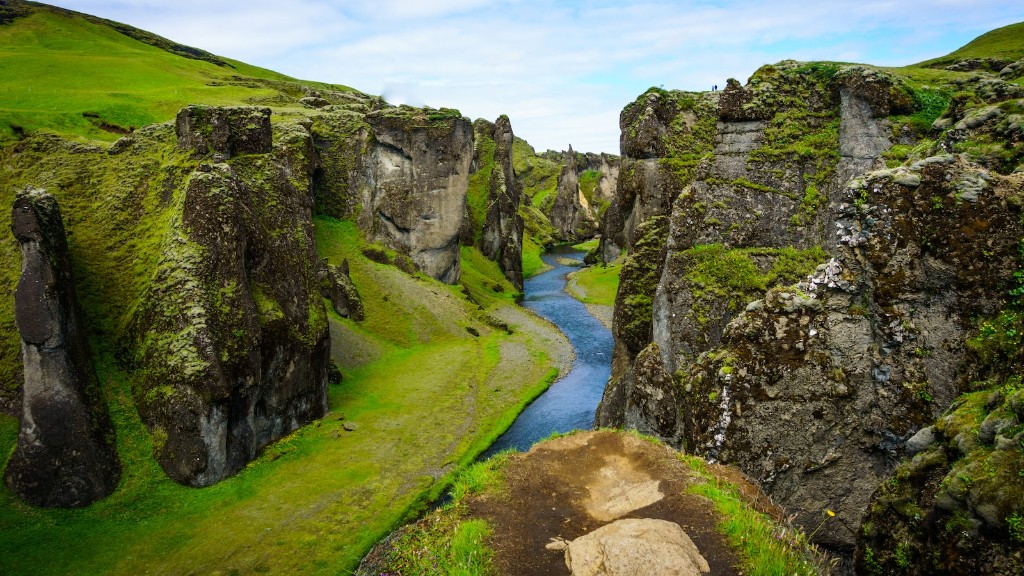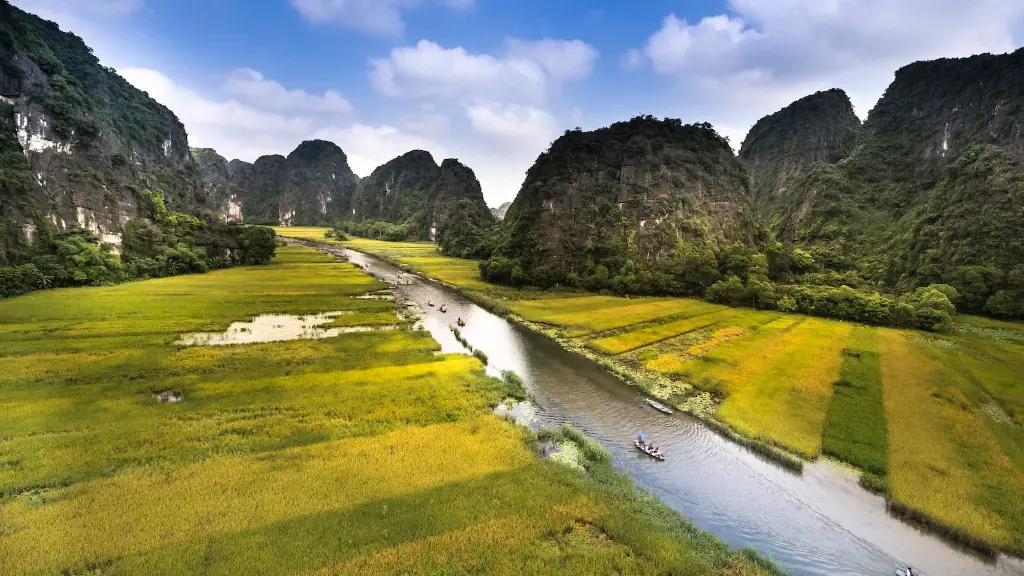The Yangtze river, the third longest river in the world, is one of the most important river systems in China. It has been a lifeline for the Chinese people for centuries and its origin can be traced back thousands of years.
The creation of the Yangtze River is attributed to the retreat of the Tibetan Plateau during the Mesozoic Era, approximately 160 million years ago. During this time period, large amounts of sediment was carried by the rivers in the region and deposited into the Yangtze basin. Over the course of time, this sediment accumulated and formed the present day Yangtze River.
Although the origins of the Yangtze may be fairly simple to understand, the complexities of its formation are astounding. Geologists believe that there were several periods of river formation that occurred in this region from the Mesozoic Era to the present. During each of these periods, various rivers formed and shifted the course of the Yangtze several times, resulting in its vast length and winding routes.
Moreover, the uplift of the Tibetan Plateau played an important role in the creation of the Yangtze. This uplift caused the surface area of the continent of Asia to rise, resulting in a dramatic increase in the rivers flowing downward towards the ocean. This, in turn, made it possible for rivers and streams to flow freely into the Yangtze basin.
The Yangtze River is one of the most important rivers in Chinese history. It has been used for transportation, fishing, and farming for thousands of years and continues to be a source of water, food, and power for millions of people today. Although the origins of the Yangtze are fairly straightforward, it is a fascinating river system that continues to be studied and marveled at today.
Impact On Geography
The Yangtze has had a profound impact on the geography of China and its surrounding area. Its winding course has changed the landscape over time, creating valleys, hills, and even islands. These changes have had a significant effect on local weather patterns, resulting in some areas that are prone to flooding while others are drier than before. Additionally, the formation of the Yangtze River has created a number of lakes and wetlands, offering a unique habitat to the region’s flora and fauna.
In addition to its influence on the environment, the Yangtze River is also responsible for the movement of people and goods throughout China. Due to its enormous length, it is the main broad-waterway for trade and transportation. Fishing is also a major industry along the Yangtze and it is estimated that over 70% of the country’s freshwater fish supply is sourced from the river.
Not only has the Yangtze had an impact on the natural environment and economy, but it has also had a great influence on Chinese culture. The river has been an integral part of Chinese literature, art, and mythology since ancient times, and its stories are often used to teach moral lessons. In modern times, the river is also a popular tourist destination and has been the filming location for many movies and television shows.
Political Influence
In recent times, the Yangtze River has become increasingly important from a political perspective. The river runs through many of China’s major cities and is now regarded as a symbol of the country’s economic development and strength. In addition, the construction of the Three Gorges Dam has also been a source of political debate. The dam has been controversial due to its potential environmental impact and its impact on the livelihoods of local people who have been displaced.
While the political implications of the Yangtze may be controversial, there is no denying that it is an incredibly important part of Chinese culture. The enormous length of the river and its winding course have shaped the landscape of the region and have made it possible for many generations of people to live and work along its banks.
Furthermore, it has provided an abundance of food and fresh water, enabling people to live in the area for centuries. It is a constant reminder of the dynamic nature of the Earth and how the landscape can be transformed over time.
Economic Impact
As one of the longest rivers in the world, the Yangtze River has had a major impact on the economy in the region. It is an essential transportation route for goods and services, allowing for a more efficient exchange of resources between cities and regions.
Additionally, the Yangtze is a major source of hydroelectricity, providing up to 60% of the country’s energy needs. This means it plays an important role in both the domestic and international markets, as the increased power output acts as a catalyst for economic growth.
Finally, the Yangtze has been the site of several major industrial projects in China. One of the most famous is the Three Gorges Dam, which has been the largest hydroelectric project in the world since its completion in 2012. The dam has not only provided clean energy to the region, but it has also created jobs, brought in foreign investments, and generated new opportunities for trade.
Environmental Impact
The Yangtze River has had a significant impact on the environment over the years. As it is one of the most important river systems in China, its impact on the environment is significant. Some of the main environmental issues related to the Yangtze are water pollution, sedimentation, and declining biodiversity.
Water pollution is a major issue along the Yangtze and it is estimated that over 300 million people live in the region with water supplies affected by pollution. Furthermore, heavy silt deposits upstream can create larger floods downstream, resulting in severe property damage.
The decline in biodiversity is also an issue along the Yangtze River. As the river’s flow has been altered by various projects, it has caused an imbalance in the aquatic habitats and has severely depleted fish stocks. This has been a major problem for local communities that rely on fishing for their livelihoods.
Given the importance of the Yangtze River to the Chinese economy and environment, there is an urgent need for better management and protection. Various government initiatives and conservation programs have been implemented in recent years in order to promote sustainable development along the river and protect its ecosystems.
Conclusion
The Yangtze River is an incredibly important river in Chinese history and it continues to have a major impact on the country and its surrounding environment. Its formation is steeped in history and was the result of several factors, including the retreat of the Tibetan Plateau and the uplift of the continent of Asia.
It has been used for transportation, fishing, and farming for thousands of years and continues to be a source of water, food, and power for many people. In addition, the Yangtze has had a profound impact on the environment, economy, and culture of the region. It is an essential part of Chinese history and its importance should not be underestimated.





